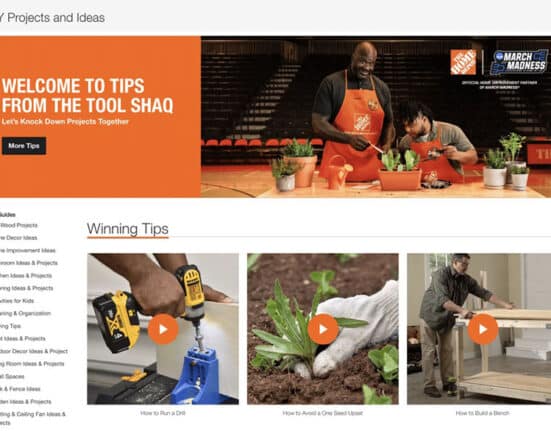Whether you’re a seasoned DIYer or just starting out, having the right tools is crucial for the success of your projects. From basic repairs to full-scale renovations, the right tools can make all the difference. This guide covers the best tools for DIY projects, including power tools, hand tools, and accessories, to help you tackle any task with confidence.
Essential Power Tools for DIY Projects
1. Cordless Drill
- Uses: Drilling holes, driving screws.
- Top Brands: DeWalt, Milwaukee, Makita.
- Features to Look For: Variable speed, lithium-ion battery, keyless chuck.
2. Circular Saw
- Uses: Cutting wood, plywood, and other materials.
- Top Brands: Bosch, Ryobi, Skil.
- Features to Look For: Adjustable depth and angle, laser guide, ergonomic design.
3. Jigsaw
- Uses: Cutting curves and intricate shapes.
- Top Brands: Black+Decker, DeWalt, Makita.
- Features to Look For: Variable speed, tool-less blade change, orbital action.
4. Random Orbital Sander
- Uses: Sanding surfaces smooth.
- Top Brands: Bosch, DeWalt, Makita.
- Features to Look For: Dust collection, variable speed, ergonomic grip.
5. Impact Driver
- Uses: Driving screws and bolts with high torque.
- Top Brands: Milwaukee, DeWalt, Ryobi.
- Features to Look For: Compact design, high torque, quick-release chuck.
Must-Have Hand Tools for DIY Projects
1. Claw Hammer
- Uses: Driving nails, removing nails.
- Top Brands: Stanley, Estwing, Vaughan.
- Features to Look For: Comfortable grip, balanced weight, magnetic nail starter.
2. Screwdriver Set
- Uses: Tightening and loosening screws.
- Top Brands: Craftsman, Klein Tools, Wera.
- Features to Look For: Interchangeable bits, ergonomic handle, magnetic tip.
3. Tape Measure
- Uses: Measuring lengths and distances.
- Top Brands: Stanley, Komelon, DeWalt.
- Features to Look For: Locking mechanism, durable blade, easy-to-read markings.
4. Utility Knife
- Uses: Cutting materials like cardboard, drywall, and carpet.
- Top Brands: Olfa, Stanley, Milwaukee.
- Features to Look For: Retractable blade, comfortable grip, blade storage.
5. Pliers Set
- Uses: Gripping, bending, and cutting wires.
- Top Brands: Channellock, Klein Tools, Irwin.
- Features to Look For: Insulated handles, various types (needle-nose, slip-joint, etc.).

Additional Tools and Accessories
1. Level
- Uses: Ensuring surfaces are level and plumb.
- Top Brands: Stabila, Empire, Johnson.
- Features to Look For: Magnetic edges, multiple vials, durable construction.
2. Stud Finder
- Uses: Locating studs in walls.
- Top Brands: Zircon, Franklin Sensors, Stanley.
- Features to Look For: Deep scanning, LCD display, AC wire detection.
3. Toolbox or Tool Bag
- Uses: Organizing and transporting tools.
- Top Brands: DeWalt, Husky, Stanley.
- Features to Look For: Durable material, multiple compartments, comfortable handle.
4. Safety Gear
- Uses: Protecting yourself during projects.
- Essential Items: Safety glasses, gloves, ear protection, dust mask.
- Top Brands: 3M, Honeywell, DeWalt.
Tips for Choosing the Right Tools
1. Assess Your Needs
- Consider the types of projects you’ll be tackling most often.
2. Invest in Quality
- High-quality tools may cost more upfront but will last longer and perform better.
3. Read Reviews
- Check customer reviews and ratings to find reliable tools.
4. Consider Cordless Options
- Cordless tools offer greater mobility and convenience.
5. Look for Warranties
- Many brands offer warranties that can save you money on repairs or replacements.
Frequently Asked Questions (FAQs)
Q: What are the most essential tools for beginners?
A: A cordless drill, claw hammer, screwdriver set, tape measure, and utility knife are great starting points.
Q: Should I buy corded or cordless power tools?
A: Cordless tools offer more flexibility, but corded tools provide consistent power for heavy-duty tasks.
Q: How do I maintain my tools?
A: Clean tools after use, store them properly, and regularly check for wear and tear.
Q: Can I rent tools instead of buying them?
A: Yes, many hardware stores offer tool rental services for infrequently used items.
Q: What safety gear do I need for DIY projects?
A: Safety glasses, gloves, ear protection, and a dust mask are essential for most projects.
Conclusion
Having the right tools is the foundation of any successful DIY project. Whether you’re building, repairing, or renovating, investing in quality tools will make your work easier, safer, and more efficient. With this guide, you’re well-equipped to tackle any home improvement task with confidence.
Call to Action: Ready to start your next DIY project? Stock up on essential tools and share your creations with #DIYSuccess!







Leave feedback about this